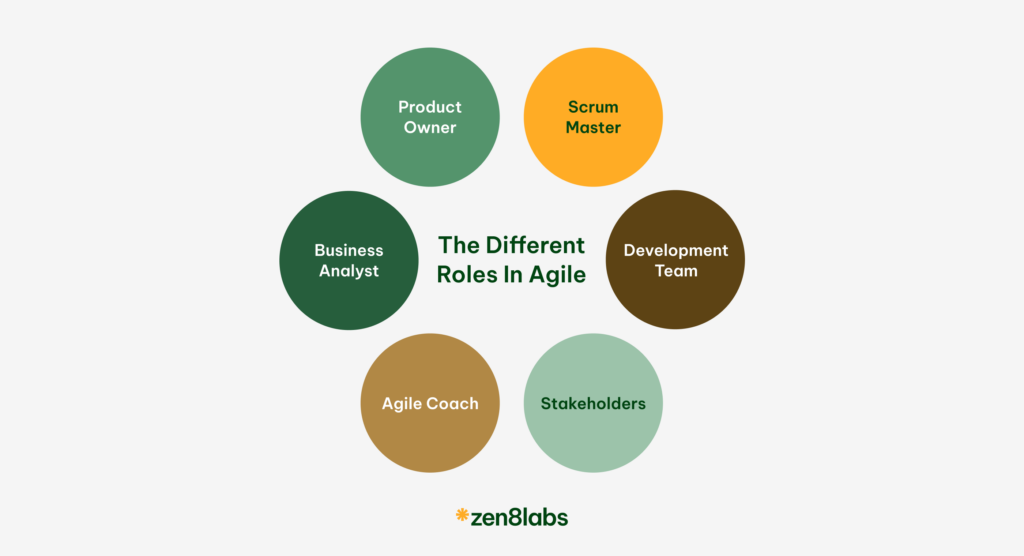
With the rise of Agile in the Software Development Life Cycle (SDLC) and methodologies like Scrum, staffing practices in software development teams have undergone significant changes. Some companies have shifted towards a developer-centric model, disregarding the dedicated role of the Business Analyst (BA). This shift is based on the misconception that Agile teams can operate efficiently with only developers, who are expected to handle additional tasks such as requirements gathering and management. However, this approach is flawed and can lead to challenges and inefficiencies. This blog explores why the Business Analyst’s role remains crucial in Agile teams and software development overall.
Misconceptions about the role of a Business Analyst in Agile projects
Misconception #1: BAs only document requirements
Some assume that BAs are solely responsible for documenting requirements and have no active role in the iterative process. Despite that view, BAs actively participate in iterative cycles by refining user stories, providing just-in-time clarification, engaging in Agile ceremonies, and fostering alignment between the development team and stakeholders.
Misconception #2: BAs slow down Agile processes
There is a belief that having a BA in an Agile team adds unnecessary layers of communication, slowing down the process. In reality, BAs facilitate faster and more efficient communication by acting as a bridge between stakeholders and the development team. They help to clarify requirements promptly, which can expedite the development process and minimize rework.
Misconception #3: BAs are not needed for small Agile teams
It is assumed that small Agile teams do not require a BA because the team can directly communicate with the product owner. However, even in small teams, a BA can add significant value by ensuring clear and well-managed requirements. BAs help the team to stay focused on delivering value without getting entangled in intricate requirement details.
Misconception #4: BAs are not involved in technical discussions
Some believe that BAs should only focus on business requirements and avoid technical discussions. While BAs primarily focus on business needs, they also need to understand the technical implications of requirements to facilitate effective communication between stakeholders and the development team. This understanding helps to create realistic and achievable user stories.
Misconception #5: Product owners can replace BAs
Many assume that product owners can handle all the responsibilities of a BA, making the role redundant. However, product owners focus on prioritizing and defining high-level requirements, meanwhile BAs manage detailed requirement analysis, stakeholder communication, and provide support to the development team. Both roles are complementary and necessary for effective Agile project execution.
Critical roles of business analysts

- Business domain knowledge: At zen8labs, BAs develop a deep understanding of the business, including processes and organizational goals. Their mastery of this knowledge provides valuable insights, enables informed decisions, and guides the development team in delivering solutions that align with the broader business context.
- Facilitating communication: BAs actively engage with stakeholders, clarifying requirements, encouraging promote collaboration, and ensuring effective sharing of information among all parties involved in the Agile project. Their role is crucial in building shared understanding, addressing concerns, and fostering effective teamwork.
- User story development: BAs work closely with the Product Owner and development team to capture user requirements in the form of well-defined, concise user stories aligned with project objectives. BAs also assist in creating acceptance criteria to guide the development team in delivering the expected functionality.
- Requirement validation and acceptance: BAs collaborate with stakeholders and the development team to validate and refine requirements throughout the development process. They ensure that implemented features meet business needs and acceptance criteria, facilitate user acceptance testing (UAT), and gather feedback for further improvements.
- Continuous improvement and adaptation: BAs contribute to the continuous improvement of Agile processes and practices. They actively seek feedback from stakeholders, constantly refine requirements, reflect on lessons learned, and suggest process enhancements to optimize value delivery to the business. These are essential pillars that support zen8labs’ core value of innovation.
Conclusion
As Agile methodologies grow, the role of BAs becomes increasingly critical. Despite common misconceptions—such as the belief that BAs are solely responsible for documentation. Yet BAs can and do facilitate communication, manage requirements, engage stakeholders, and drive continuous improvement makes them indispensable in Agile environments. We here at zen8labs are consistently demonstrating our skills and expertise through previous challenges we have faced, in order to enhance our Agile practices and deliver high-quality products. If you want high quality products then reach out to us!
Dzung Nguyen – Senior Business Analyst





